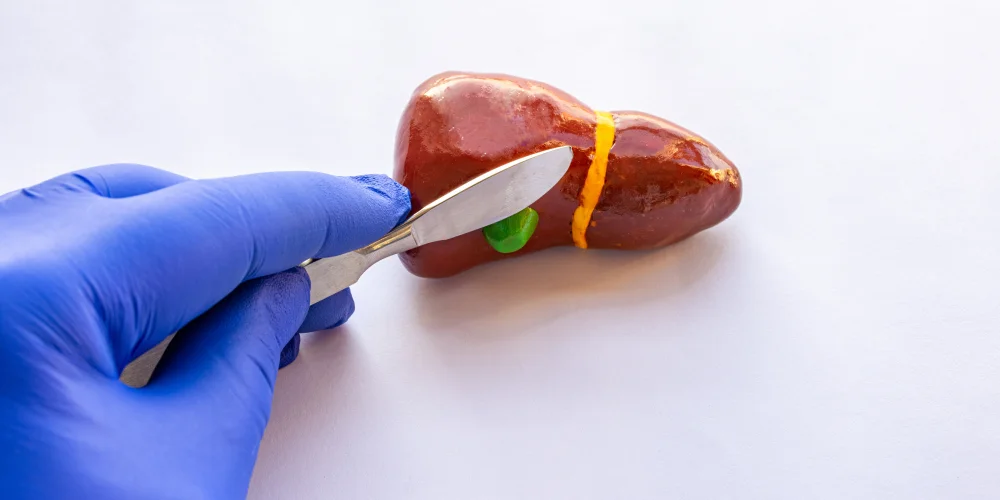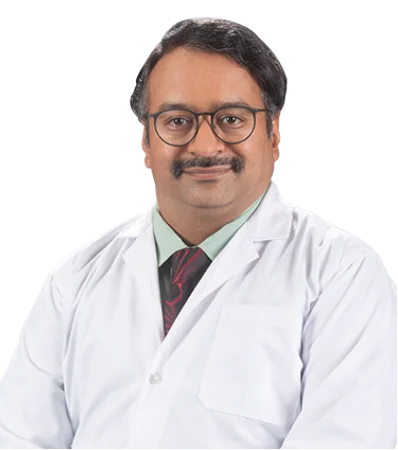Laparoscopic Cholecystectomy Surgery
Advanced Techniques for Faster Recovery and Less Pain
Laparoscopic Cholecystectomy is a less invasive surgical procedure that removes the gallbladder. It is typically done when gallstones trigger discomfort, inflammation, or an infection. This procedure provides a less risky and faster alternative to traditional open surgery, which allows patients to resume their routine activities faster. The procedure is performed at Chirayu Super Speciality Hospital, our skilled surgeons employ state-of-the-art laparoscopic techniques to provide precise and efficient treatment. With a particular focus on the comfort of patients and their healing, we endeavor to provide the best quality of care to patients who need gallbladder removal.

What is Laparoscopic Cholecystectomy?
Laparoscopic cholecystectomy (also known as laparoscopic) is an operation that requires taking out the gallbladder by using the laparoscope, which is a small, light tube equipped with cameras. The procedure is done via small cuts in the abdomen. This allows surgeons to observe the gallbladder from a screen and then remove it with specialized instruments. This procedure is minimally invasive and is less painful as well as less scars and faster recovery when compared to open surgery. This is by far the most popular treatment for gallbladder issues caused by gallstones. They could cause extreme pain, infection, as well as other complications.
Who Performs Your Surgery
Laparoscopic Cholecystectomy at Chirayu Super Speciality Hospital is performed by highly skilled general surgeons who have years of experience and extensive training with laparoscopic surgery. The surgical team at Chirayu Super Specialty Hospital is aided by nurses, anesthesiologists along with other specialists that specialize in laparoscopic surgeries and ensure that each patient receives a thorough and professional treatment. The team is committed to providing a secure surgical experience that yields the highest results that can be achieved.
Indications for Laparoscopic Cholecystectomy
- Gallstones : Solid particles that form in the gallbladder, causing pain, blockage, or inflammation.
- Cholecystitis : Inflammation of the gallbladder, often due to gallstones, leading to severe pain and infection.
- Biliary Dyskinesia : Poor functioning of the gallbladder, causing digestive problems and chronic abdominal pain.
- Pancreatitis : Inflammation of the pancreas, sometimes caused by gallstones blocking the bile ducts.
- Gallbladder Polyps : Abnormal growths in the gallbladder that may require removal to prevent complications.
Symptoms Indicating Need for Laparoscopic Cholecystectomy
The most common signs that be a sign of an indication of the necessity for laparoscopic surgery comprise extreme stomach painfulness (especially on the left side of your abdomen) nausea and vomiting, bloating and fever. It is common for pain to occur after eating meals that are fatty and can radiate into the shoulder or back. It is also known as jaundice (yellowing of the eyes and skin) may also happen when gallstones restrict the bile drainage.
Diagnosis for Laparoscopic Cholecystectomy
The diagnosis of gallbladder disorders typically is a physical exam as well as blood tests to search for evidence of inflammation or signs of infection as well as imaging tests like ultrasonography as well as CT scans. These diagnostic tools aid in identifying gallstones as well as inflammation or problems in the gallbladder as well as the bile drains. Based on the results and the doctor’s recommendations, he will suggest laparoscopic cholecystectomy as the most appropriate option for the patient.
Treatment Process
The procedure for laparoscopic cholecystectomy begins by administering general anesthesia to make sure the patient is comfortable and comfortable. The surgeon makes tiny incisions on the abdomen, and through these an laparoscope as well as surgical instruments are introduced. The laparoscope transmits images to a screen, permitting the surgeon to remove the gallbladder from the liver and the bile the ducts. The gallbladder then is removed using an incision. Following the surgery the incisions are then closed by stitches or surgical glue then the patient will be transferred to a hospital for observation.
Care and Recovery After Surgery
The recovery from laparoscopic cholecystectomy can be usually quick, with a majority of patients being able to return home on the same day, or following the overnight hospitalization. Patients are advised to walk around and move about shortly after surgery in order to avoid complications. A low-calorie diet is recommended beginning with a gradual transition to regular meals when they are comfortable. Treatment for pain is offered as well as patients being advised to stay away from the strenuous lifting and heavy lifting for a couple of weeks. It is important to follow-up with appointments to track healing and make sure that there are no issues. The majority of patients resume work and normal activities in a matter of one to two weeks.
Advantages of Choosing Our Surgery Services
Invasive Gallbladder Removal
Advanced laparoscopic techniques minimize pain, scarring, and recovery time.
Experienced Surgeons
Highly skilled in performing safe and effective gallbladder removal procedures.
Quick Recovery
Patients typically return home the same day with rapid recovery and minimal post-operative discomfort.
What Our Patients Say
Read about our patients positive experiences and how Chirayu Super Speciality Hospital has positively impacted their health and well-being.


My healing process after laparoscopic surgery was fast and smooth. The doctors at Chirayu provided excellent post-op care.


Thanks to the laparoscopic procedure at Chirayu, I was back to my normal activities within a week. Excellent care!


The surgeons at Chirayu were highly skilled. My laparoscopic cholecystectomy was smooth, and I felt comfortable throughout the process.


I had my gallbladder removed laparoscopically at Chirayu. The recovery was quick, and I experienced minimal pain. Great care!
Meet Our Medical Specialists
Our skilled surgeons specialize in minimally invasive laparoscopic cholecystectomy, providing safe and effective gallbladder removal with personalized care.
Frequently Asked Questions
Here, we provide answers to some of the most commonly asked questions to help you better understand about our surgery services. If you have any additional questions, please do not hesitate to contact us.
Initially, a light diet is recommended. Gradually, you can return to your regular diet as your digestive system adjusts.
Benefits include smaller incisions, less pain, reduced scarring, shorter hospital stay, and faster recovery.
The procedure typically takes about 1 to 2 hours, depending on the complexity of the gallbladder condition.
Recovery is usually quick, with most patients able to go home the same day. Full recovery takes about 1 to 2 weeks.
Yes, it is a safe and common procedure with a low risk of complications. Our experienced surgeons ensure the best outcomes.



